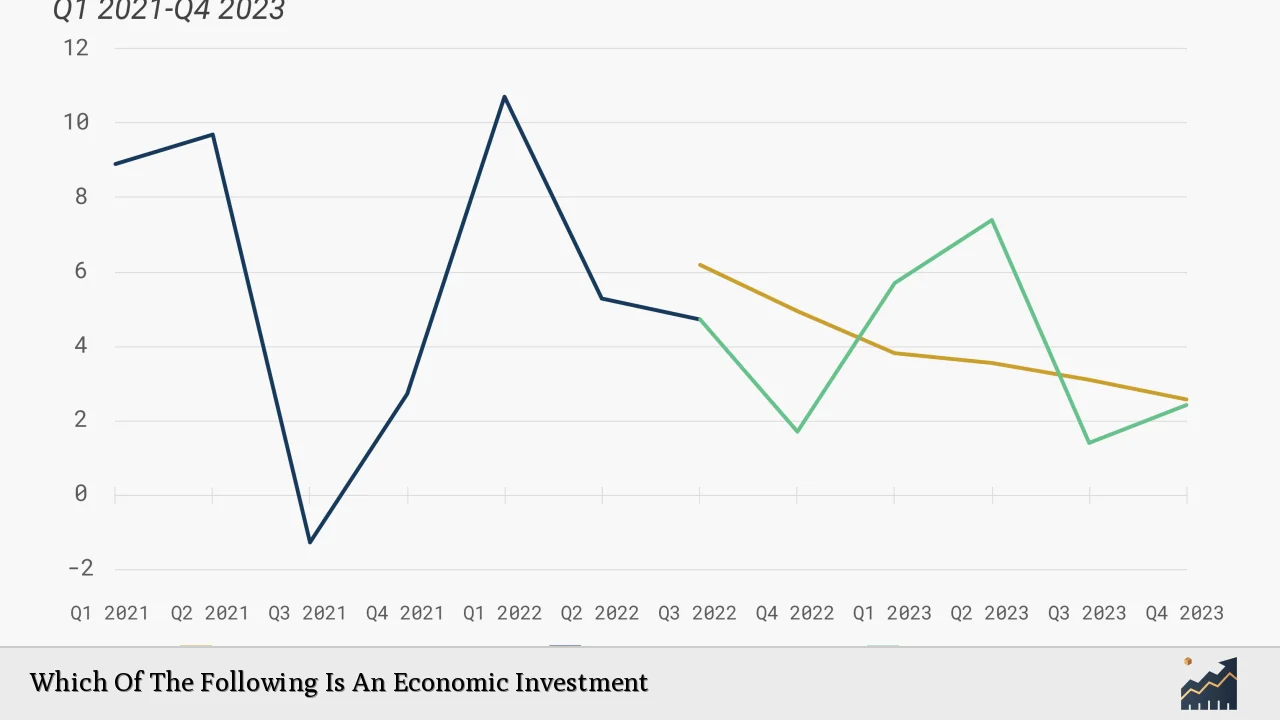Economic investment plays a crucial role in the growth and stability of economies worldwide. It refers to the allocation of resources towards the creation or enhancement of productive capacity, which can include physical assets like factories and machinery, as well as investments in human capital, such as employee training. Understanding what constitutes an economic investment is essential for individual investors, finance professionals, and policymakers alike.
Economic investments are distinct from financial investments, which focus on acquiring financial assets like stocks and bonds. The primary goal of economic investment is to increase an economy’s productive capacity and drive long-term growth. This article will delve into various aspects of economic investment, including market analysis, implementation strategies, risk considerations, regulatory aspects, and future outlook.
| Key Concept | Description/Impact |
|---|---|
| Economic Investment | Investments that enhance productive capacity, such as building factories or purchasing machinery. |
| Financial Investment | Acquisition of financial assets aimed at generating profits, such as stocks and bonds. |
| Gross Domestic Product (GDP) | Economic investments contribute directly to GDP growth by increasing production capabilities. |
| Human Capital Investment | Investments in employee training and development that improve productivity. |
| Foreign Direct Investment (FDI) | Investments made by foreign entities in domestic industries that enhance local production. |
| Business Expenditures | Spending by businesses on capital goods that are used to produce other goods or services. |
Market Analysis and Trends
The landscape of economic investment is shaped by various factors including technological advancements, regulatory changes, and shifts in consumer demand. As of 2024, global economic growth is projected to be modest due to high interest rates and inflationary pressures. According to J.P. Morgan’s economic outlook, real GDP growth is expected to slow to around 0.7% in 2024 after a stronger-than-expected performance in 2023.
Current Trends
- Digital Transformation: Businesses increasingly invest in digital technologies to enhance efficiency and customer engagement.
- Sustainability: There is a growing trend towards sustainable investments, with companies focusing on environmentally friendly practices.
- Infrastructure Spending: Governments are ramping up infrastructure investments to stimulate economic growth post-pandemic.
Sector-Specific Insights
- Manufacturing: The manufacturing sector continues to see significant capital expenditures driven by the need for modernization and efficiency improvements.
- Real Estate: The housing market shows signs of recovery after a period of stagnation due to high mortgage rates. A projected easing of rates could revitalize residential construction.
Implementation Strategies
To effectively implement economic investments, businesses must adopt strategic approaches that align with their long-term goals:
- Conducting Feasibility Studies: Before committing resources, companies should assess market conditions and potential returns on investment.
- Diversifying Investments: Spreading investments across different sectors can mitigate risks associated with economic downturns.
- Leveraging Technology: Utilizing advanced technologies can enhance productivity and reduce operational costs.
- Collaboration with Governments: Engaging with government initiatives can provide additional funding opportunities for large-scale projects.
Risk Considerations
Investing in economic projects carries inherent risks that must be managed effectively:
- Market Volatility: Economic conditions can change rapidly due to factors such as geopolitical tensions or changes in consumer behavior.
- Regulatory Risks: Changes in government policies or regulations can impact the viability of certain investments.
- Financing Risks: High interest rates can increase the cost of borrowing, making it more expensive for businesses to finance new projects.
Regulatory Aspects
Understanding the regulatory environment is critical for successful economic investment:
- Compliance Requirements: Companies must adhere to local laws regarding environmental protection, labor standards, and financial reporting.
- Incentives for Investment: Many governments offer tax incentives or grants to encourage businesses to invest in specific sectors or regions.
- Foreign Investment Regulations: Understanding regulations governing foreign direct investment is essential for companies looking to expand internationally.
Future Outlook
The outlook for economic investment remains cautiously optimistic despite current challenges:
- Resilient Consumer Demand: Strong consumer spending is expected to support business investment activities.
- Technological Advancements: Continued innovation will drive new opportunities for investment across various sectors.
- Global Economic Recovery: As economies stabilize post-pandemic, there will be increased opportunities for both domestic and foreign investments.
Frequently Asked Questions About Which Of The Following Is An Economic Investment
- What defines an economic investment?
An economic investment refers to spending that adds to the productive capacity of an economy, such as building new factories or purchasing machinery. - How do economic investments affect GDP?
Economic investments directly contribute to GDP by increasing production capabilities and enhancing overall economic output. - What is the difference between economic and financial investments?
Economic investments focus on enhancing productive capacity while financial investments involve acquiring financial assets aimed at generating profit. - What are some examples of economic investments?
Examples include building new manufacturing facilities, investing in research and development, and purchasing equipment for production. - Why are human capital investments important?
Investing in employee training enhances productivity and contributes positively to a company’s overall performance. - What role does government play in economic investment?
Governments can stimulate economic investment through policies that provide incentives or support infrastructure development. - How do global trends influence local economic investments?
Global trends such as technological advancements or shifts towards sustainability can create new opportunities or challenges for local businesses looking to invest. - What risks should investors consider when making economic investments?
Investors should consider market volatility, regulatory changes, financing costs, and potential shifts in consumer demand when evaluating risks associated with economic investments.
In conclusion, understanding what constitutes an economic investment is vital for making informed decisions that drive growth within an economy. By analyzing market trends and implementing effective strategies while considering risks and regulatory aspects, investors can position themselves for success in a dynamic financial landscape.

